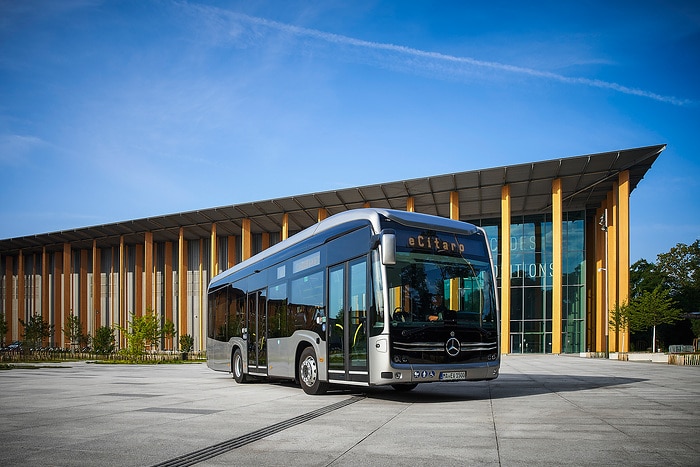
SWU Verkehr GmbH and Daimler Buses conclude contract
for the delivery of 37 Mercedes-Benz eCitaro and eCitaro G buses
London, July 21, 2025 , (Oilandgaspress) –––Following a Europe-wide tender from SWU Verkehr GmbH (SWU for short), Daimler Buses has been awarded the contract to supply 37 battery-electric Mercedes‑Benz eCitaro and eCitaro G solo and articulated buses. The contract was signed on 18 July 2025 at the Ulm Town Hall Square by Klaus Eder, Managing Director of Stadtwerke Ulm /Neu-Ulm GmbH, Ralf Gummersbach, Managing Director of SWU Verkehr, and Till Oberwörder, CEO of Daimler Buses. The contract includes the option of a further nine eCitaro electric buses. SWU’s total investment for all 46 electric buses amounts to 34.6 million euros.

The 37 battery-electric vehicles will be delivered successively by the end of 2026, and the optional nine vehicles are planned for use from 2027. The new electric buses will gradually replace the existing diesel buses in the SWU bus fleet and will be used for public transport in the two towns of Ulm and Neu-Ulm on the Danube. There are already 14 eCitaro G articulated buses in operation, procured by SWU in 2024 and 2025, and these significantly contribute to the reduction of CO₂ emissions in urban traffic and the improvement of air quality in Ulm and Neu-Ulm.
“Electromobility in public transport is an essential component for liveable cities. We are delighted to be able to support SWU in this forward-looking project – with our know-how, innovative technology and a strong team directly on site in Neu-Ulm,” says Till Oberwörder, CEO of Daimler Buses.
The 37 new electric buses are divided into 15 three-door, 12.14-metre-long eCitaro solo buses and 22 four-door eCitaro G articulated buses with a length of 18.3 metres. They offer a transport capacity of up to 65 passengers in the solo buses and up to 143 passengers in the articulated buses. The new electric buses also improve accessibility: enlarged special use areas provide plenty of space for wheelchairs, prams or walking aids. Climate control is provided by a state-of-the-art CO2 air conditioning system with sophisticated thermal management.
The new SWU electric buses are equipped with the fourth and thus latest lithium-nickel-manganese-cobalt battery generation (NMC4). With 111 kWh of energy per battery pack, NMC-4 batteries combine high power density, and thus significantly longer ranges, with a very long service life, even with regular quick charging processes with up to 300 kW charging power.
The battery charging options are also flexible: solo and articulated buses can be charged not only in the bus depot using sockets on the left and right-hand sides above the front axle, but also while travelling at specifically designed stops using a pantograph on the bus roof. This so-called ‘opportunity charging’ is necessary to fulfil the demanding bus routes in Ulm and Neu-Ulm under all conditions and to avoid the use of additional vehicles. A special roof-mounted camera system helps the driver to approach the pantograph charging station with maximum precision.
Information Source: Read More
energy news,oil market ,gas prices ,Oil and gas press, Energy , Climate, Gas,Renewable, Sustainability, Oil Price, LPG, Solar, Marine, Aviation, Fuel, Hydrogen, Electric ,EV, Gas,

